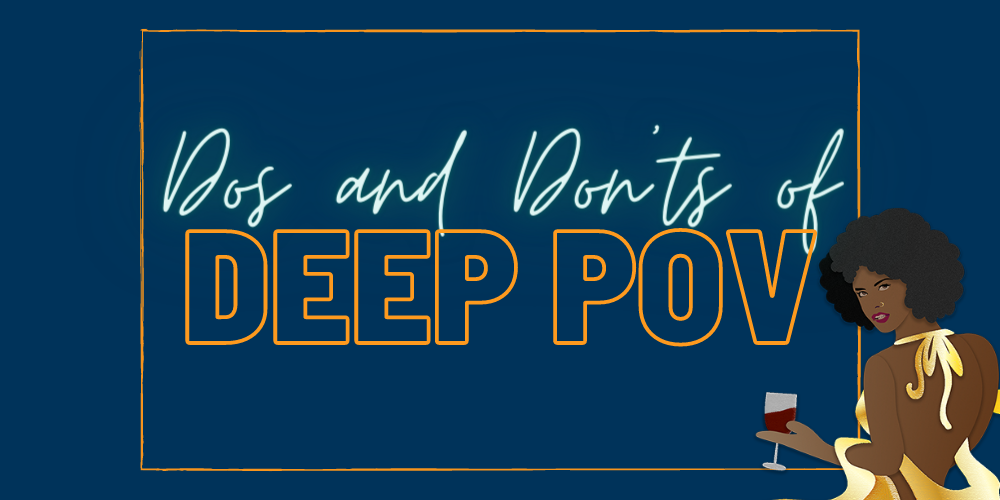
Hello there writers! With April coming to an end, we’d like to review our theme for the month! This month we talked about some “Dos and Don’ts of Deep POV.” Deep POV is all about immersion—your readers are there, in the story experiencing the world right along with your character. They hear, see, feel, etc. what your character does all while being emotionally connected to them.
Give details in your character’s voice—it’s unique to them because each of your characters is unique. Readers may never get your character’s full backstory, but they have one and it’ll affect how they see the world. Their experiences shape the way the think, react, and respond.
Ditch those filter words (great for tightening your writing too!). We don’t need to be told the character is thinking, feeling, or seeing. Reword your sentences to get rid of those pesky words and bring us closer to your character. With those filter words out of the way and readers experiencing what your character is, make sure you aren’t over-explaining feelings, thoughts, etc.—don’t tell us they’re anxious or did an action in anger, show us.
Readers should only know what your character knows. I repeat: readers should only know what your character knows! Don’t head-hop to give extra info, either. Work all those juicy details in through what the character experiences, sees, and thinks based on who they are as an individual.
Now here are some things be mindful of when diving into deep POV. Be careful not to go overboard on the internal dialogue—yes, there will be more in a deep POV story, but we don’t want to lose readers in a forest of internal dialogue. Avoid unneeded dialogue tags, instead of using I/she/he/they said, reword where you can to give us additional detail linked to the person talking. A final point to be mindful of is, passive voice. It’s a tip that makes many lists of tips for a reason! Use active voice whenever you can. With deep POV, passive voice distances the reader from the character.
With all that said and done, there’s a caveat to deep POV: not all stories lend themselves to deep POV, and that is ok. Not using deep POV doesn’t make you a terrible writer. It means you are trying to tell your story in the best way possible.
Last month we shared tips on good, bad, and ugly tropes. Check them out on, our blog, Twitter (@FromCarly), or Instagram (@BookLightEditorial)!
Thanks for stopping by, writers. You’re doing awesome, keep at it.

